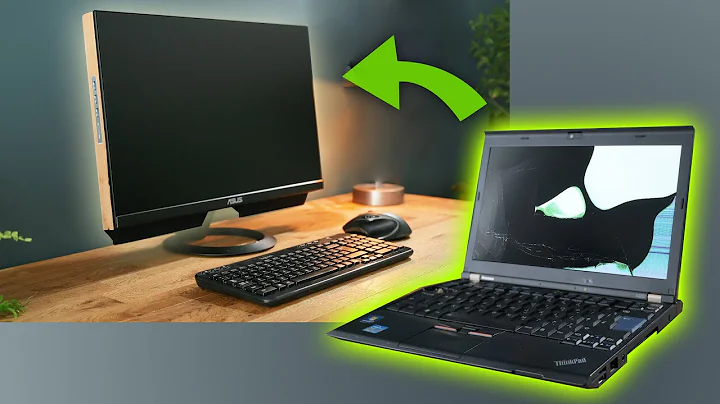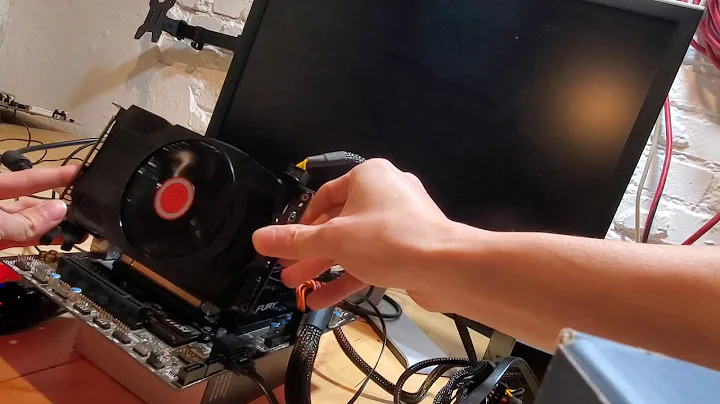Can Linux Damage Computer Hardware?
Solution 1
In theory: can any software (including Windows) damage hardware: Yes.
In practice: no.
Linux is no different from this than any other OS. Same (lack of) risks as windows, OSX, MacOS (classic), FreeBSD, netBSD, OpenBSD, QNX, ...
not as compatible
Uh, I would say precisely even compatible. No less, no more.
But I suspect that you mean "has fewer drivers or gets them later". In which case it will simply not fully recognise part of the hardware. It will happily work. You can boot, edit files, run Firefox, etc etc. But do check if there is a driver for any exotic hardware.
This is no different from Windows. Especially when upgrading with older devices for which the manufacturer does not write updated drivers.
Solution 2
Ideally, no, Linux (or any other software) should not be able to physically harm hardware. Not having drivers might mean that you can't use certain pieces of hardware, but you certainly shouldn't be able to damage them, either.
Unfortunately, there have been cases where cheap or poorly-made hardware is brickable by software. For example, a lot of early UEFI firmware didn't properly write-protect certain things, leading to the ability to overwrite vital data and destroy your motherboard [1] [2].
Linux won't hurt your hardware any more than any other OS would, but there are certain things that it can't protect you from.
Solution 3
Only faulty hardware.
Scandals happen. The UEFI brickage (mentioned by muskox) is a nice, but rare, example.
Hardware that misreports its features is actually not that uncommon. For example, SSDs that claim to support qued trim but don't, and SATA controllers that claim to not support SATA link power management but do. The consequences are data loss and poorer battery life respectively, but hasn't resulted in physical damage, AFAIK. These devices end up in shameful blacklists and whitelists in the drivers, and the world moves on, but means that a too old kernel for your hardware is risky.
For some unfortunate hardware, missing drivers means missing power management. For newer GPUs, that means you'll be stuck at a low performance setting, which is safe. But if you're stuck at high performance, and there is not enough cooling for this amount of power, and the component doesn't turn itself off when it gets too hot, it will overheat. That would be a design flaw, as the same could happen if the OS hangs, which can also happen to Windows. I've heard of laptops getting hot because both GPUs stay active, but I think they shut themselves off before it gets dangerous.
Related videos on Youtube
LetMe Code4You
Updated on September 18, 2022Comments
-
LetMe Code4You almost 2 years
I'm going to install Elementary OS on my desktop computer( i3 550, 4GB RAM), is there anything that I should note before I go for installation? I've heard that Linux distros are not as compatible to computer hardware as Windows OS-es ,so is there going to be a problem?
-
 Lightness Races in Orbit over 7 years"I've heard that Linux distros are not as compatible to computer hardware as Windows OS-es" Where did you hear that?
Lightness Races in Orbit over 7 years"I've heard that Linux distros are not as compatible to computer hardware as Windows OS-es" Where did you hear that? -
 Michael Hampton over 7 yearsCan Windows damage computer hardware?
Michael Hampton over 7 yearsCan Windows damage computer hardware? -
 Admin over 7 years+1 where did you hear this claim. It might not be notable enough to consider.
Admin over 7 years+1 where did you hear this claim. It might not be notable enough to consider. -
 Admin over 7 yearsTechnically, and operating system can damage hardware if the hardware controllers allow it to.
Admin over 7 yearsTechnically, and operating system can damage hardware if the hardware controllers allow it to. -
 Giacomo1968 over 7 yearsA can of soda has a better chance of damaging hardware than an OS does.
Giacomo1968 over 7 yearsA can of soda has a better chance of damaging hardware than an OS does.
-
-
Nicholas Pipitone over 4 yearsI just installed Ubuntu and it totally bricked my GPU and my Audio. Never touched the windows partition and now Windows can't detect gpu or speakers in its device manager, and lspci in Ubuntu shows neither. Since in the three laptops I tried putting Ubuntu on, all from three different companies all have caused me to spend 200 hrs+ installed and uninstalling drivers and reinstalling ubuntu over and over again, I thought it was bad but usable. But now Ubuntu has successfully bricked a $2000 new laptop with a gtx1060, so I think it's over. Linux on desktop sure, but never laptops.






